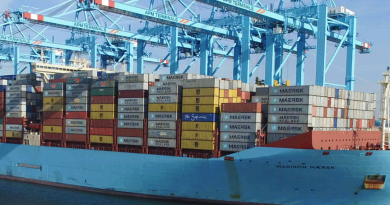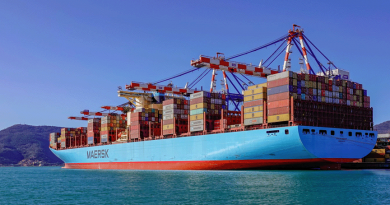Ecotourism. Dream it. See it. Share it
James Cortez is an independent travel writer, based in Cannes
It is time to move away from focusing on the pandemic and instead look towards the future. To say that the pandemic has wreaked havoc on travel feels like an understatement. With ongoing cancellations and travel restrictions, it’s been a difficult period for both holidaymakers and travel firms.
But things are looking up, and the roll out of coronavirus vaccines has brought a fresh wave of hope for those who miss holidays, with some already starting to book trips across both 2021 and 2022.
Travel won’t be the same as it once was, but maybe that won’t be a bad thing. Cities will be quieter, UNESCO World Heritage Sites won’t be over-crowded and the skies will be less polluted. The planet has had a breather, and although the tourism industry has been suffering massively, the pandemic has taught us a vital lesson – that travel is a privilege and not a right.
Post-COVID travellers are more discerning about the journeys they go on, willing and able to be away from home for longer (thanks to remote working), more appreciative of their surroundings and local people, and less reckless in their spending.
While many of us miss the freedom and excitement of travel, there is no doubt that there has been a realisation that travelling for social prestige should not be what motivates us going forward. We have to choose trips that really mean something to us and are worth the effort of making a journey to an overseas location. So we have to adapt.
How will our travel habits change? After endless months of cabin fever, there will be a universal hunger for wide-open spaces. Time spent in the wilderness is felt to be an antidote to modern urban life. The point-to-point holiday will be rivalled by an emerging trend for trips that take in multiple locations, occur at a slower pace, and are as much about the journey as the ultimate destination.
As people think more carefully about the way they travel, they will seek out hotels and travel companies that are doing everything they can to minimise their impact on the planet. We can also expect accreditation to gain prominence, as consumers look for reassurance from legitimate ‘eco-tourism’ certifications.
Beachgoers will be swapping sun and pina coladas for shade and coconut water. Even if visitors aren’t specifically travelling for a detox or bootcamp experience, they will want to book trips that leave them feeling better than before when they return home. Wellness tourism is becoming increasingly popular.
Engaging with local communities in a safe and respectful way will also be an important aspect of trips in the future, with tourists keen to learn and form human connections. We will also want to leave a positive footprint – to give something back – whether that is paying direct or volunteering.
There will be a wider shift towards more meaningful travel, centred around giving back to the planet. Out go the weekend getaways and in with itineraries for longer periods of time.
There’s one key reason as to why this is important. There are many communities and conservation projects around the world that are completely reliant on tourism. Their income has completely halted due to the pandemic and many are concerned it will get to the point of no return.
There has been a shift towards experience-driven travel. People have been in their homes for months so now they want to discover new places, cultures, cuisines, landscapes, activities and reconnect with nature
Many companies have launched conservation-centric experiences for their clients, such as tracking previously undocumented elephant herds in Angola’s unspoilt wilderness and supporting safari rangers in Botswana’s Okavango Delta. These are also remarkable opportunities to be the first to see wildlife and landscapes that have been left undisturbed over the past few months.
The pandemic has forced us to slow down and many of us are not in a hurry to return to a fast-paced style of travel. This will often be closer to home, but we’re also seeing strong demand for all types of wilderness travel as people want to spend more time outdoors, from the Galapagos to Antarctica voyages.
People want to get active on holiday and keep up the walking or cycling they enjoyed during lockdown. Many are also ready to tackle that challenge they’ve always dreamed of.
There has been a shift towards experience-driven travel. People have been in their homes for months so now they want to discover new places, cultures, cuisines, landscapes, activities and reconnect with nature.
Finally, a last thought, as the idea of the ‘holiday’ starts to feel anachronistic, simply being abroad will be the mindful alternative. This will manifest in the rise of ‘workations’, where visitors combine work with vacations, embedding themselves for longer periods of time in a certain place.




